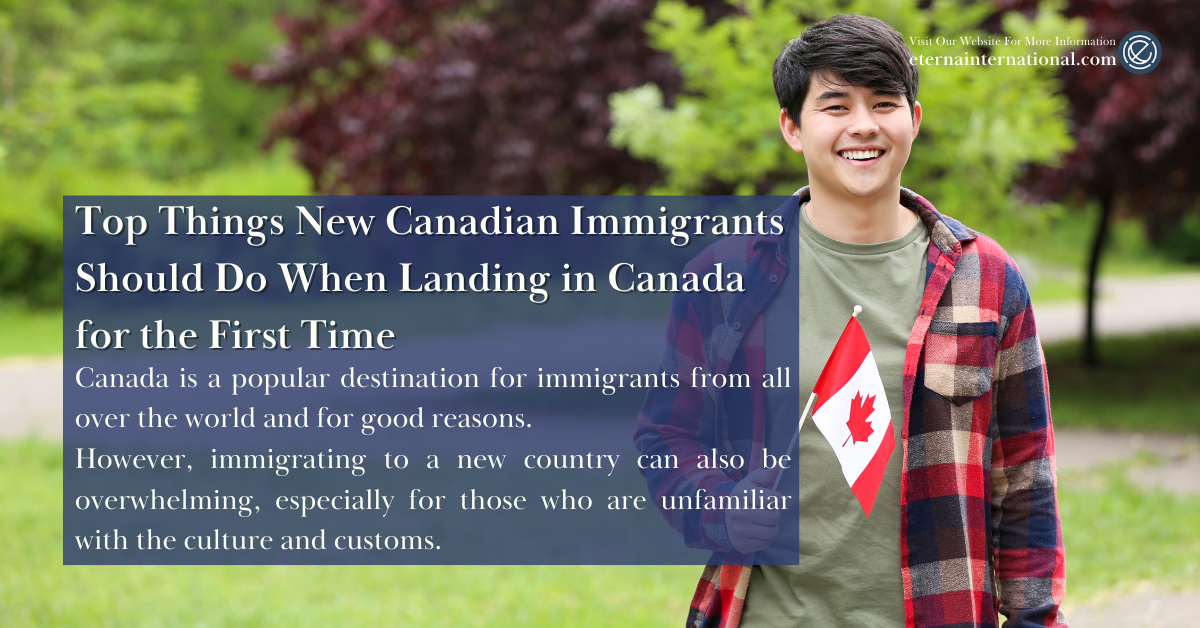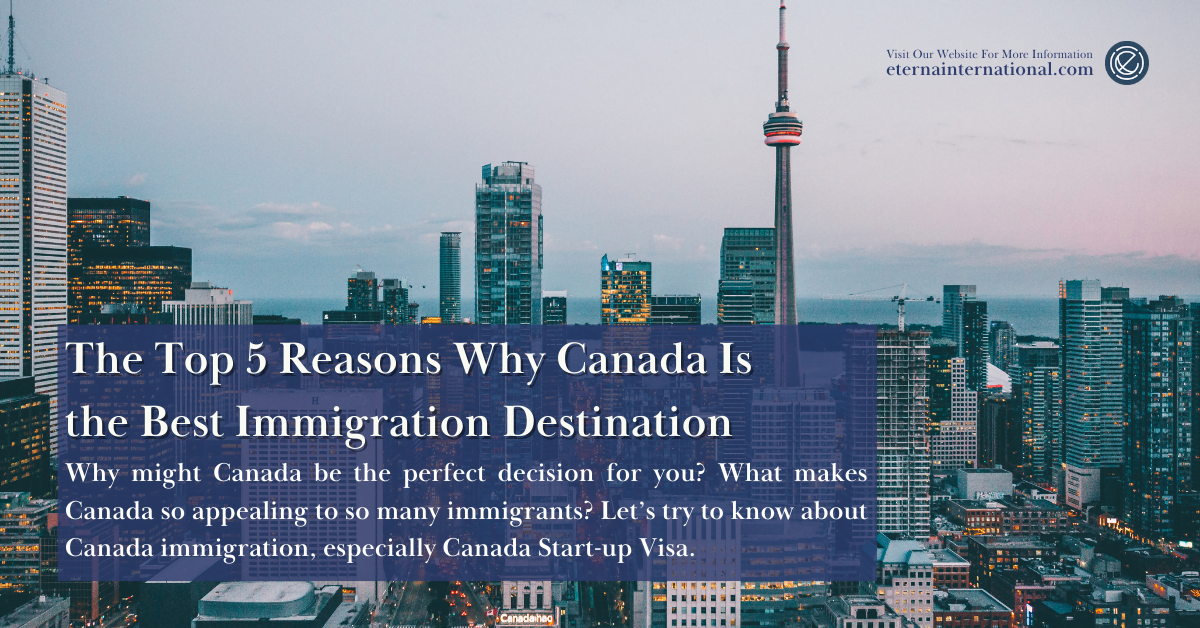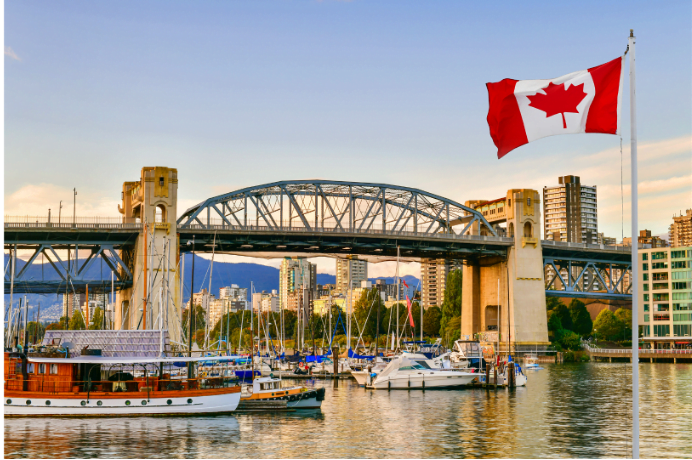Canada is a popular destination for immigrants from all over the world and for good reason. With its welcoming culture, strong economy, and high quality of life, Canada offers many opportunities and benefits to those who choose to make it their new home. However, immigrating to a new country can also be overwhelming, especially for those who are unfamiliar with the culture and customs.
To the new Canadian immigrants, here are the top things you should do when landing in Canada for the first time:
1. Complete Immigration and Customs Procedures:
Upon arrival in Canada, you will need to complete immigration and customs procedures.
New Canadian immigrants need to be prepared and organized before arriving in Canada. They should ensure they have all necessary documents and identification with them, including their passport, visa, and confirmation of permanent residence. The immigration officer will verify the immigrant’s identity and status in Canada. They will ask questions about the purpose of the immigrant’s visit, their intended length of stay, and their plans while in Canada.
They should also be aware of any restrictions or requirements related to the goods they are bringing into Canada and should be prepared to declare them to customs officials if necessary. Immigrants must also declare any currency or monetary instruments they are carrying that are valued at CAD$10,000 or more.
Immigrants can also seek assistance from immigration consultants or lawyers, or from government resources such as the Immigration, Refugees and Citizenship Canada (IRCC) website, to help them navigate the immigration and customs procedures.
2. Settle into Temporary Accommodation:
If you have not yet secured permanent housing, you will need to find temporary accommodation. This can include hotels, hostels, or short-term rentals.
Before arriving in Canada, research your options for temporary accommodation. This can include hotels, hostels, or short-term rentals. Consider factors such as cost, location, and amenities, and choose an option that meets your needs and budget.
To ensure you have a place to stay upon arrival, book your temporary accommodation in advance. Make sure to confirm your reservation and bring a copy of your booking confirmation with you.

3. Open a Bank Account:
Opening a bank account is an important step in establishing yourself in Canada. It allows you to receive payments, pay bills, and access other financial services. Research different banks and their services to find one that meets your needs. Consider factors such as fees, interest rates, and accessibility, and choose a bank that has branches and ATMs in your area.
When opening a bank account, make sure to bring all the necessary documents with you. You may also need to provide proof of address, such as a utility bill or rental agreement, to open a bank account. If you do not yet have a permanent address, you may be able to use your temporary accommodation address or a friend’s or family member’s address.
If you do not have a credit history in Canada, it may be more difficult to open a bank account or qualify for certain services, such as a credit card or loan. However, some banks offer secured credit cards or other products designed for new immigrants, which can help you establish a credit history in Canada.
4. Apply for a Social Insurance Number (SIN):
When new Canadian immigrants arrive in Canada, one of the most important things they need to do is apply for a Social Insurance Number (SIN). A SIN is a nine-digit number that is issued by the Government of Canada and is required for many activities in Canada, such as working, paying taxes, and accessing government benefits.
Service Canada is the government agency responsible for issuing SINs. Find a Service Canada Centre near you to get the SIN application form. Bring your completed application form and original documents to a Service Canada Centre. The staff will verify your identity and process your application. You will be issued a SIN card or a letter with your SIN number on it.
Your SIN is a confidential and important piece of information. Keep your SIN card or letter in a safe and secure place, and do not share it with anyone unless it is required for a specific purpose, such as for tax or employment purposes.
5. Register for Health Care:
The Canadian healthcare system is publicly funded, meaning that most basic medical services are provided at no cost to all residents. It’s important to register for health care in your province or territory as soon as possible after arriving in Canada.
In general, new Canadian immigrants are eligible for health care coverage if they have been granted permanent residency or have a work permit or study permit that is valid for at least six months.
Once you have determined your eligibility, gather your documents, find out how to register for health care in your province or territory, and complete the healthcare registration form. The form can usually be downloaded from the health ministry website or picked up at a local healthcare office.
After you register for health care, it’s important to understand your coverage. Healthcare coverage in Canada includes medically necessary services such as doctor visits, hospital care, and diagnostic tests.

6. Learn about Canadian Culture and Customs:
Canada is a culturally diverse country, and learning about its customs and etiquette will help you integrate into Canadian society and avoid cultural misunderstandings.
Settlement programs are offered by the Canadian government and non-profit organizations to help new immigrants settle into their new communities. These programs offer a range of services, including language classes, cultural orientation workshops, and assistance with finding housing and employment.
Meanwhile, immigrants can try to attend cultural events, volunteer, watch Canadian media, movies, or TV shows, and talk to locals to learn about Canadian culture and feel more at home in their new environment.
7. Start Networking:
Building a network of contacts is essential for finding employment, making friends, and accessing resources and services.
By joining a professional association, attending networking events, joining social groups, connecting with alumni associations, using social media, and attending community events, new immigrants can connect with people in their new community, learn about job opportunities, and build their own network in Canada.
8. Look for Employment:
Finding employment is crucial for establishing yourself in Canada and supporting yourself financially.
Before starting your job search, update your resume to highlight your skills and experience. Research job opportunities in your field. Networking with other professionals in your field can also help you learn about job opportunities.
Consider taking temporary work or contract work to gain Canadian work experience and build your network. Temporary work can also lead to permanent job opportunities.
If immigrants need any help in finding a new job in Canada, reach out to employment agencies or immigrant settlement organizations for assistance.
9. Explore your New City:
Canada is a beautiful country with many unique cities and attractions. Take time to explore your new city and discover its hidden gems. Visit local museums, parks, and landmarks, try new foods, and meet new people. This will help you feel more at home and connected to your new community.
10. Stay Positive and Be Patient:
Adjusting to a new country can be challenging, and it’s important to stay positive and patient. Remember that it takes time to establish yourself in a new place and that setbacks and challenges are a normal part of the process. Stay focused on your goals, seek support from friends and family, and stay optimistic about your future in Canada.
If immigrants move to Canada through the Canada Start-up Visa program, they don’t need to face the challenge of looking for employment as they will start their businesses in Canada. The SUV program connects immigrant entrepreneurs with experienced private sector organizations that have expertise in working with start-ups. These organizations provide support and guidance to the entrepreneur throughout the start-up process, including mentorship, networking, and access to funding sources.
The Canada Start-up Visa program provides a unique opportunity for immigrant entrepreneurs with a supportive business environment, access to funding and resources, and opportunities for growth and innovation, immigrant entrepreneurs can establish thriving businesses in Canada. The program also provides a pathway to permanent residency status, which provides greater stability and security for the entrepreneur and their family.
Immigrating to Canada is an exciting and life-changing experience. By following these top tips, new Canadian immigrants can ease their transition and start building a successful and fulfilling life in their new homes. Good luck on your new journey, and welcome to Canada!



